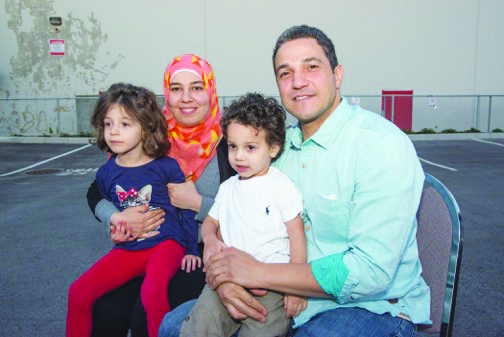
Ray Hudson
The federal government has announced that of the twenty-five thousand Syrian refugees it will bring to Canada before the end of the year, 900 will be brought to Surrey, 600 to Coquitlam, 550 to Burnaby, 300 to Vancouver and 150 to New Westminster.
It’s more than numbers. These numbers are men and women, families with children, who will be arriving from a very different part of the world and a very different climate at this time of year (although not as dramatic as other parts of the country).
But what is it really like to go through the process.The Asian Journal spoke with Ziad Mahra who is a Syrian – Canadian originally from Kuwait, and asked for his perspective on what is in store for, and needed by, the newly arriving Syrian refugees as they start their new lives in the lower mainland of British Columbia, Canada.
Maher who was trained as a biomedical technician in Canada, with a specialty in dialysis machines, has had the experience of being involved as a Canadian abroad trying to return to Canada with his Syrian wife and child. He has the experience of being caught up in a system where he was legally able to return to Canada, yet faced the dilemma of not being able to bring his wife. Over a number of years of persistently seeking a visa from a seemingly reluctant Canadian bureaucracy, and after fleeing Syria to Lebanon, he was finally able to bring the family back to Canada on Valentines Day 2013, when they landed at YVR. But his journey hasn’t been a smooth sailing and still doesn’t have a happy ending as he tries to re-establish his life here without the assistance available to other refugees, because he isn’t a refugee. He is a Canadian citizen.
In a future edition, we will tell his story, but at this point we contacted Maher to get his perspective on the people who will soon be dealing with the dislocation of starting a new life in a new place.
“I think they are very good people coming,” Maher said. “They have been described by the German people as being very good workers with strong ethics. I think they will be an advantage to this country.”
When asked about the fear of terrorist infiltration among the refugees, he felt the newcomers, who are not from the group that are currently fleeing Syria into Europe, will have already been screened and will be thoroughly screened again. He has no concern on that.
“I think those people who have some of these fears should understand what the Muslims have contributed to Canada since they’ve been living here, generation after generation,” he said. “The Syrian people are not trouble makers and they blend into the society very well.”
“It’s been told,” Maher continued, “that if you give Syrian people empty land, they would turn it into something that would flourish. These people are hard working people. And with respect to working with the Canadian community, their ability to work with everyone comes from their lifestyle in Damascus, and other Syrian communities, which are very multi-cultural. Because of that, they have a high tolerance for different faiths, beliefs and cultures.







